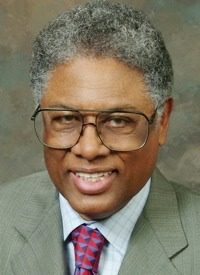
One of a surprising number of old, well-established politicians being challenged in this year’s election by some unknown newcomer is Senator Russ Feingold in Wisconsin. In a recent debate between Senator Feingold and his new challenger, businessman Ron Johnson, the difference between the old pol and new guy on the block stood out.
Feingold was clearly smoother and more glib — and his arguments may have sounded more plausible to those unfamiliar with the facts. But what Ron Johnson said would have resonated better with those who did know the facts. How many people are in which category may determine the outcome of this election.
Senator Feingold wants Social Security kept pretty much the way it is. That would mean that there is not enough money to pay what is owed to the baby boomers who retire. Ron Johnson wants to keep Social Security as is for those who have already retired and for those approaching retirement years, but would not make it mandatory for younger people to join, if they don’t want to.
Russ Feingold was on it in an instant, accusing his opponent of denying the benefits of Social Security to young workers and forcing them into the risky stock market for their retirement.
Although Senator Feingold cast himself in the role of a defender of Social Security, Ron Johnson pointed out that members of Congress like Senator Feingold had in fact undermined Social Security financially, by spending its money on other things.
This is in fact the dirty little secret about Social Security. In all the years when the money coming into Social Security exceeded the money being paid out in pensions, Congress simply spent the difference on everything from junkets to earmarks.
The fiction of a Social Security “trust fund” was maintained by giving government bonds in exchange for the money taken. But these bonds changed nothing, since they were just claims on future taxpayers.
If these bonds had never been printed, future taxpayers would have been on the hook for future shortfalls. Neither the government nor anyone else can spend and save the same money.
But the question is: How well did Johnson explain it to people who don’t know the facts? That is also something that could determine the outcome of this election.
As for the dangers of the stock market, it would take a very poor index mutual fund to do worse than Social Security, even if the investor retires when the stock market is down.
After Ron Johnson referred to having recently read the Constitution, Russ Feingold pounced and depicted that as showing that his opponent hadn’t read the Constitution before. It was the kind of political trick that may impress people who don’t pay close attention.
But, to those who do pay attention to what goes on, the mention of the Constitution should remind them of the McCain-Feingold bill, which restricted free speech by some in the closing days of an election campaign. Just what part of “Congress shall make no law” abridging the freedom of speech did Senators Feingold and McCain not understand?
Apparently quite a lot. The Supreme Court has already declared part of that law unconstitutional.
The rationale for the McCain-Feingold law was to reduce the influence of money in political campaigns. But did you notice any reduction in the role of money after that law was passed and before it was declared unconstitutional? Feingold and McCain sold our birthright and didn’t even get the mess of pottage.
Finally, there was that old favorite from the liberal playbook, “tax cuts for the rich.” According to Senator Feingold, we cannot allow high-income people to continue to get the Bush administration tax cuts because the federal budget needs the money.
It has been shown so many times, in many administrations, as well as in other countries, that reductions in tax rates do not imply lower tax revenues. Often it has meant more tax revenues, when people change their behavior in response to tax cuts, and the resulting increase in economic activity generates higher incomes.
It is “tax cuts for the economy,” but that does not have the same political pizzazz as “tax cuts for the rich.”
The question in Wisconsin, as elsewhere, is whether the voters want more political cleverness of the kind that has gotten this economy into its present predicament.
To find out more about Thomas Sowell and read features by other Creators Syndicate columnists and cartoonists, visit the Creators Syndicate web page at www.creators.com. Thomas Sowell is a senior fellow at the Hoover Institution, Stanford University, Stanford, CA 94305. His Web site is www.tsowell.com.
COPYRIGHT 2010 CREATORS.COM


